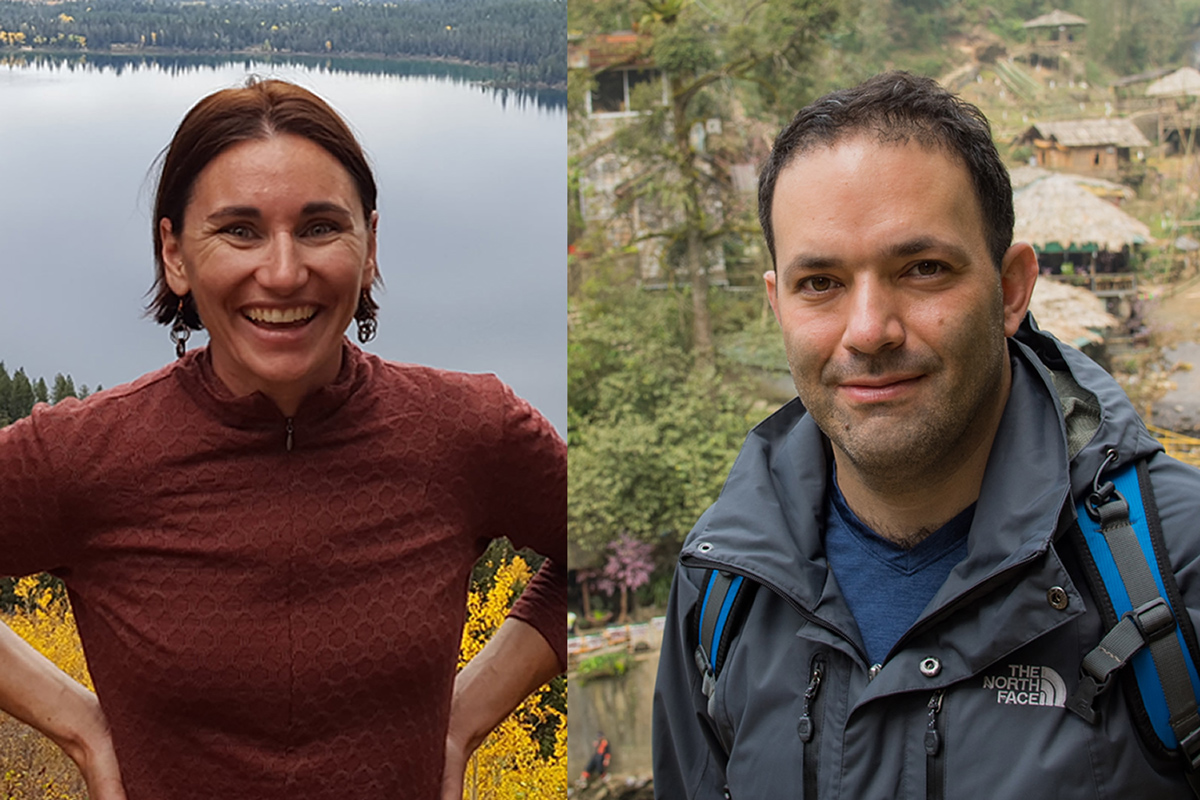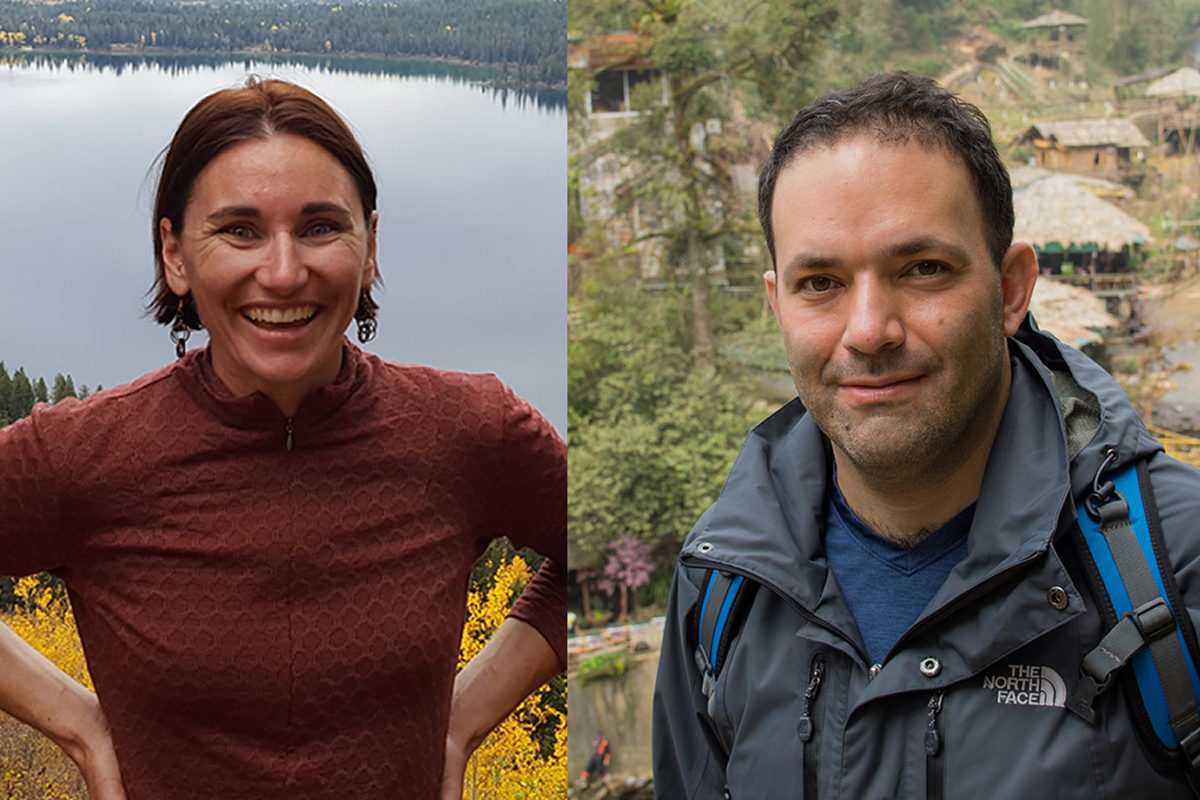
ISUH has a role in reaching out and collaborating with other sectors beyond urban health.
Episode Abstract
Dana Thomson and Jose Siri have a strong history of collaboration. In fact, their collaboration began at the ISUH’s International Conference on Urban Health (ICUH) in Dhaka, Bangladesh. That meeting led to a collaboration for the Habitat III project. They met up again at the ICUH in Coimbra, Portugal in 2017. They are now collaborating on the creation using a menu of datasets to support the work of urban health decision makers in practical and accessible terms.
Jose works in three basic spaces: (1) understanding how complexity impacts health; (2) how to create solutions for addressing this complexity through systems thinking to help decision makers; and (3) understanding how the knowledge that we produce as researchers can affect how health decision making is viewed at the community level. He points out that it is important to make sure that urban health is recognized as a central theme in sustainable development. He sees ISUH as providing a space to explore and create dialogue around all these spaces.
Dana is s a household survey with a background in geography and public health. She has created a tool to select household survey samples called gridsample.org. It sounds very technical, but the impact is simple: making sure that by using these gridded-population data sets as a sample frame, we can ensure that the poorest and mobile populations have an equal chance of being represented in household surveys. This is important for ensuring such populations are not left out of major government decisions about which areas get resources.
Dana’s and Jose’s collaboration will be presented at the ICUH in Kampala, Uganda in November 2018. Their goal is to influence urban health dialogue between health decision makers and urban health scientists by creating datasets to map areas in slum boundaries where infrastructure is insecure, and health is tenable. They will help to provide estimates of survey data by slum and non-slum areas. However, they point out that this is a piece in a larger puzzle. It allows us to develop data for marginalized populations and informal settlements.
From a user experience point of view, the datasets will facilitate easy decision-making. Jose described the SALURBAL project in Latin America as an example. The project focuses on knowledge to policy and this is where data get used to influence policy. However, first they want to get a sense of how different communities source information, how information is processed, and how it is used. This information will influence how data is made available to policymakers.
They both see ISUH’s value in promoting transdisciplinary networks among researchers and providing formal dedicated spaces for systems thinking for knowledge to policy. One place that ISUH might find an important role is in evaluating local action being taken to affect the SDGs. Further ISUH can provide vehicles for collaboration among researchers that can provide feedback from LMICs. For Dana, the ICUH elevates voices form LMICs that she doesn’t often get to hear. The dialogue among practicing researchers, activist groups, and people in the field. She would love to see a shift in how research is done in complex urban settings.
For Jose, ICUH has been the most important conference that he goes to for a number of years because it crosses scales, sectors, geographies, and areas of focus and allows the engagement of the kind of coalitions that help to address complex urban health issues. For Dana, the excursions that take place at ICUHs allow for cross-country, cross-city comparison as a form of practice-based learning – an area for informal learning and networking.
For both Dana and Jose, ISUH can facilitate remote activity and exchange in networks to create transdisciplinary funding for urban health research and get members to apply for this type of funding. ISUH has a role in reaching out to and collaborating with other sectors beyond urban health, developing collaborative publications and special issues with organization such as the Planetary Health Alliance, green space organizations, etc.
Guest Bio
The emphasis of Dana Thomson’s research is identification of populations who are under-represented in large-scale household surveys such as the urban poorest, and development of tools and methods to improve survey accuracy.
This work is particularly relevant in low- and middle-income countries (LMICs) where routine household surveys are used to evaluate policies and track international targets such as the Sustainable Development Goals. Household survey methods were established in the early 1980s but have not changed much in LMICs since. As a result, new tools and methods are needed to address decay in survey accuracy due to major societal shifts that have modified household configuration and behaviours over the last four decades including urbanization and increased mobility.
Dana created the GridSample R algorithm and GridSample.org to select complex representative household surveys from gridded population data. Gridded population datasets, such as worldpop.org.uk, are models of the population in small grid squares (as small as a city block, ~100m x100m) and provide an alternative sample frame when census data are outdated or inaccurate. The GridSample tool has been used by a number of international agencies, local governments, and academic projects to select household surveys, including the Surveys for Urban Equity in Kathmandu, Dhaka, and Hanoi.
Dana worked previously as a Researcher at Harvard Medical School supporting large-scale health system evaluations in Rwanda, Haiti, Mali, and other countries. For two years, she was seconded to the University of Rwanda where she lectured and contributed to research capacity-building under the Rwanda Ministry of Health, Human Resources for Health programme. During that time, she supported first-time first-authors to publish original research in international peer-reviewed journals, co-organized intensive practice-based workshops, and created an online course at www.populationsurveyanalysis.com.
José Siri is a research fellow at the United Nations University International Institute for Global Health (UNU-IIGH) and a leader in the development and application of systems approaches to urban health. His academic expertise bridges urban and planetary health, epidemiology, systems thinking, sustainable development, infectious disease, climate change, and urban studies. His research and policy work has focused on leveraging science for healthy development, conceptualizing simple systems tools to catalyze better decision-making, and improving understanding of complex challenges in urban health.
Current research includes the British Council Newton-Ungku Omar Fund-sponsored SCHEMA project (Systems Thinking and Place-based Methods for Healthier Malaysian Cities), which has worked to build a community of practice around the use of systems approaches to resolve complex urban health challenges in Malaysia, and the Wellcome Trust-funded SALURBAL project (Salud Urbana en América Latina or Urban Health in Latin America), which unites partners from across the Latin American region to produce policy-relevant evidence on urban health.
Dr. Siri has contributed to global policy processes, including those leading to the Sustainable Development Goals (SDGs) and the New Urban Agenda (NUA), and presented publicly in 30+ countries. He is a co-founder and Executive Committee member of the Urban Health Research Network for Latin America and the Caribbean (LAC-Urban Health), a member and leader of the Future Earth Urban and Health Knowledge-Action-Networks (KANs), and a contributor to the Tsinghua-Lancet Commission for Healthy Cities in China.


